The voluntary national review (VNR) is a part of the follow-up and review mechanisms of the 2030 Agenda and the Sustainable Development Goals (SDGs). There are no such a follow-up and review mechanisms of the SDGs at the local level, but some local and regional governments voluntarily conduct a review of SDG implementation. This is known as a Voluntary Local Review (VLR). The first VLR was conducted in 2018 by four cities, namely New York City (USA), Kitakyushu City, Toyama City, and Shimokawa Town (Japan) and the number of local and regional governments conduct the VLR has been increasing.
Both VNRs and VLRs are expected to facilitate the mutual learning of implementation of the 2030 Agenda and its SDGs at local, national, regional and international levels. In addition, VNR and VLR are also expected to serve as tools to enhance SDG implementation on the ground by promoting multi-stakeholder participation and expanding mutual understanding and partnership among stakeholders. As more and more VLRs are conducted, the need to link the VNR and VLR has been pointed out by the international community to maximize the effectiveness and benefits of the voluntary review. However, further discussion is necessary on how the VNR and VLR should be linked or complement each other. Through exchange insights by experts with different backgrounds on the voluntary reviews at national and local level, this thematic session intends to formulate suggestions for future discussion on VNR-VLR linkage, especially for the HLPF2021.
National and local officials engaged in SDG implementation and experts especially those who provide support to governments on promoting the SDGs
SpeakersChief, National Strategies and Capacity Building Branch Division for the Sustainable Development Goals, United Nations Department of Economic and Social Affairs (UNDESA)
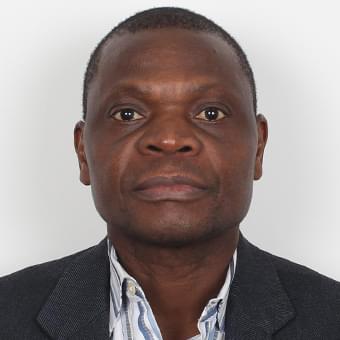
Amson Sibanda
Chief, National Strategies and Capacity Building Branch Division for the Sustainable Development Goals, United Nations Department of Economic and Social Affairs (UNDESA)
Dr. Amson Sibanda is Chief of the National Strategies and Capacity Building Branch in the Division for Sustainable Development Goals, Department of Economic and Social Affairs (DESA). He has over 15 years of progressively responsible experience in a broad range of sustainable development issues at the global, regional and national levels, including the various intergovernmental processes that underpin this work. As Chief of the National Strategies and Capacity Building Branch, provides policy advice, through the Director of the Division, to the Under-Secretary-General and senior officials in the Department on capacity development related to the follow up to the 2030 Agenda for Sustainable Development, the Rio+20 and World Summit on Sustainable Development, the Samoa Pathway and related UN activities. He leads and manages the activities undertaken by the Branch that supports DESA’s operational work aimed at developing capacities of developing countries to translate internationally agreed policy frameworks and programmes at country-level. In particular, he leads a team that provides advisory services and tailored support to developing countries focusing on integrating the 2030 Agenda into national development plans and strategies, preparations of Voluntary National Reviews, and the identification of gaps and challenges with national implementation. This work contributes to accelerating the implementation of the 2030 Agenda for Sustainable Development, including the Sustainable Development Goals and their targets and commitments through increased engagement of Member States and other stakeholders. He also oversees the work of the Department of Economic and Social Affairs’ two project offices, the United Nations Office for Sustainable Development (UNOSD) in the Republic of Korea and the United Nations Center for Regional Development (UNCRD) in Japan. These project offices carry out several capacity development activities to support developing countries in planning and implementing sustainable development strategies and promoting sustainable regional development and awareness of environmental issues. Mr. Sibanda holds a Doctorate and an M.A. in Demography from the University of Pennsylvania, an MSc in Population Studies and B.A. in Geography (Honors) from the University of Zimbabwe.
Director of Research and Intelligence United Cities and Local Governments (UCLG)
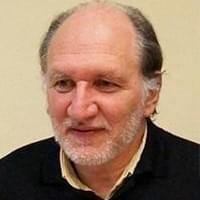
Edgardo Bilsky
Director of Research and Intelligence United Cities and Local Governments (UCLG)
Born in Buenos Aires (Argentina), makes his studies in Paris (France), Master in Contemporary History at the Ecole des Hautes Etudes en Sciences Sociales in Paris (1984). He began his career as a professor of History and Social Sciences at the University of Buenos Aires and the University of Paris III and Paris V. He published various books and articles. In early 1990, he integrates the cooperation agency of the World Federation of United Cities -CUD-, in charge of programs with Central America and later with Latin America. In May 2004, he participates in the creation of UCLG. In 2006, he assumed the coordination of the Global Report on Decentralization and Local Democracy (GOLD).
Research Leader, Strategic and Quantitative Analysis Centre, IGES
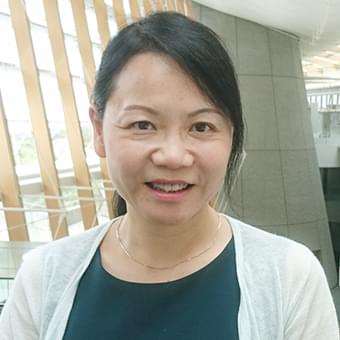
Xin Zhou
Research Leader, Strategic and Quantitative Analysis Centre, IGES
Dr. Xin Zhou is a Research Leader at the Strategic and Quantitative Analysis Centre (QAC) at the Institute for Global Environmental Strategies. Currently, she is leading quantitative policy research in the areas of SDG interlinkages analysis and visualisation, green investment and green jobs assessments, and the water-energy nexus. In recent years, she led a wide array of policy assessment projects, including, but not limited to: the implications of nationally determined contributions (NDC) on the labour market in Indonesia, an assessment of carbon pricing and border carbon adjustment on industrial competitiveness and carbon leakage in Japan, an assessment of embodied emissions and international trade for Asian countries, an assessment of environmental goods and services sectors and their effects on employment in north-eastern Asian countries, as well as the development of the Japan 2050 Low Carbon Navigator.
She received a Ph.D. in Environmental Studies from Nagoya University, Japan, in 2007. Before that, she had been working with the Policy Research Center for Environment and Economy (PRCEE), the Ministry of Environmental Protection, China, since 1994. As Director of the Policy Research Division, she led many policy research supporting national policy-making on the environment. She has received several national scientific achievement prizes for her academic and social contributions to the Chinese government.
Counsellor / Chief Specialist on Sustainable Development at the Prime Minister's Office in Finland

Sami Pirkkala
Counsellor / Chief Specialist on Sustainable Development at the Prime Minister's Office in Finland
Mr.Sami Pirkkala works as a Counsellor / Chief Specialist on Sustainable Development at the Prime Minister's Office in Finland. His key responsibilities relate to the implementation of the 2030 Agenda in Finland and in the EU. He has had a key role in the preparation of Finland’s VNR reports in 2016 and 2020, as well as in the preparation of national Agenda2030 implementation plans in 2017 and 2020. He is the Chair of the National Follow-up Network for Sustainable Development, and one of the Vice Chairs of the European Sustainable Development Network ESDN.
Research Leader, Sustainability Governance Centre, IGES
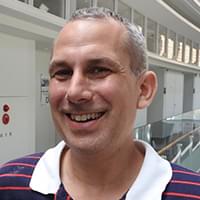
Eric Zusman
Research Leader, Sustainability Governance Centre, IGES
Eric Zusman is a Senior Policy Researcher and Area Leader at the Institute for Global Environmental Studies in Hayama, Japan. He holds a Bachelor’s degree in Mandarin Chinese from Rutgers University, a dual Master’s Degree in Public Policy and Asian Studies from the University of Texas at Austin and a Ph.D. in Political Science from the University of California, Los Angeles. For much of the past two decades, he has worked on environmental issues in Asia. This has included publishing articles and book chapters on water scarcity, air pollution regulation, environmental law, and state capacity in Greater China. He has also worked with China’s Yellow River Conservancy Commission and the Chinese Research Academy on Environmental Science. In addition, he has also held research assistantships with the Woodrow Wilson Center’s China Environment Forum in Washington D.C., as well as Taiwan’s Academia Sinica. He is currently serving as a lead author for the sixth assessment report of the Intergovernmental Panel on Climate Change (Chapter 17).
Joint-Programme Director, City Taskforce, IGES

Yatsuka Kataoka
Joint-Programme Director, City Taskforce, IGES
After engaged in environmental technology transfer and capacity building projects targeted at the Southeast Asian countries in Global Environment Centre Foundation (GEC), Ms. Kataoka joined IGES in 2001. At IGES, she worked for water management related research projects, especially focusing on groundwater management policy and water quality management in Asian countries. After serving the senior coordinator for networking and outreach at Programme Management Office from April 2013 to March 2015, she was assigned as the Deputy Director of Kitakyusyu Urban Centre. She obtained LLM, Graduate School of International Cooperation Studies of Kobe University.
Deputy Director, Global Issues Cooperation Division, International Cooperation Bureau, Ministry of Foreign Affairs of Japan
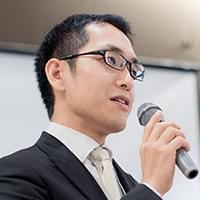
MORITA Atsushi
Deputy Director, Global Issues Cooperation Division, International Cooperation Bureau, Ministry of Foreign Affairs of Japan
Mr. Morita joined the Ministry of Foreign Affairs of Japan in 2008. After working at the Embassies of Japan in the Syrian Arab Republic, Jordan, UK and Yemen between 2010 and 2015, he has worked in the Arms Control and Disarmament Division of Disarmament, Non-proliferation and Science Department since September 2015. From August 2017, he served at the Political Section of the Permanent Mission of Japan to the United Nations, and was assigned the current position from June 2020.
Regional Sustainable Development Consultant, Environment and Development Division, United Nations Economic and Social Commission for Asia and the Pacific (UNESCAP)

Samiuddin Ahmed
Regional Sustainable Development Consultant, Environment and Development Division, United Nations Economic and Social Commission for Asia and the Pacific (UNESCAP)
Samiuddin Ahmed is a development professional from Bangladesh with more than eight years of experience working with civil society organisations, donor and government agencies. As a consultant working for the United Nations Economic and Social Commission for Asia and the Pacific (ESCAP), Sami is responsible for supporting the regional Follow-Up and Review process of the 2030 Agenda, strengthening stakeholder engagement, contributing to regional knowledge products and assisting countries and cities to prepare their Voluntary National Review (VNR) and Voluntary Local Review (VLR) reports.
Programme Director, City Taskforce, IGES
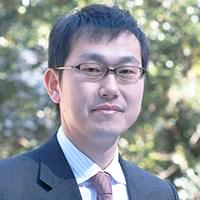
Junichi Fujino
Programme Director, City Taskforce, IGES
Dr. Fujino received his Ph.D. in Electrical Engineering from the University of Tokyo, focusing on analysing the world’s energy system in the year 2100 (SDG 7). In 2000, he began his work at the National Institute for Environmental Studies. He has been involved in “Low Carbon Society Scenarios Research Project towards 2050” and has participated in the government’s committee for Japan’s greenhouse gas emission reduction toward COP15 as well as toward the 2015 Paris Agreement (SDG 13). Since the autumn of 2010, he has been a committee member for promoting the "FutureCity” initiative and has supported local governments in sustainable city planning. He has also served as a member for the “Urban Planning and Sustainability Committee” (of the Tokyo 2020 Olympics Organizing Committee), as well as the Chair of the“Decarbonisation Working Group” (SDG 11). Currently, his focus is on supporting Asian countries and local governments in efforts to decarbonise and achieve the SDGs (SDG 17). He has been an IGES full-time researcher since April 2019.